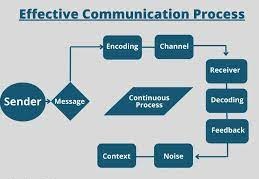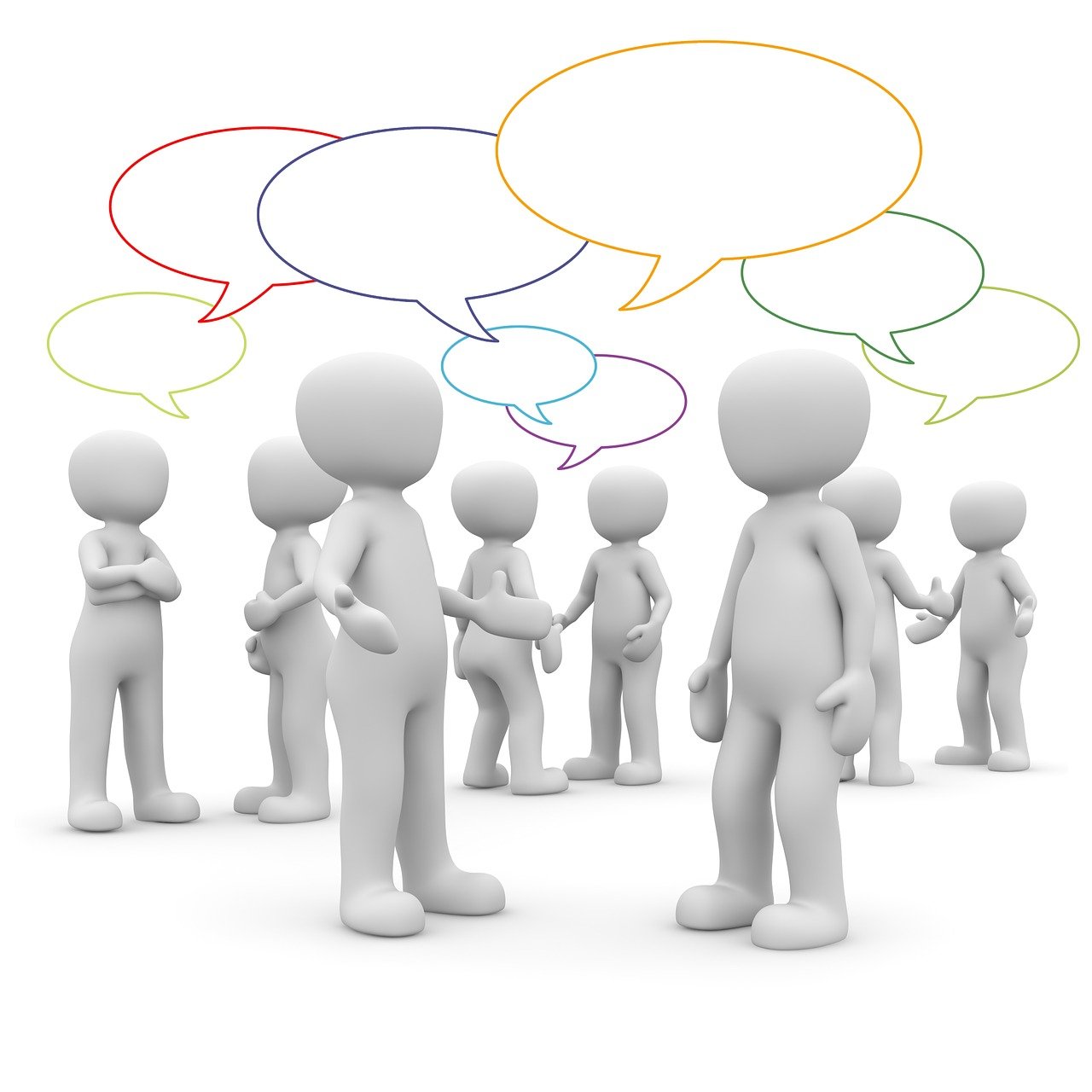MEANING OF COMMUNICATION
Communication, in simple terms, is the process of sharing information, thoughts, or feelings between people. It involves expressing ideas through words, gestures, or other means, and it also includes listening and understanding what others are trying to convey. Communication is a fundamental part of everyday life and is crucial for connecting with others, exchanging information, and building relationships.
10 Basic Communication Techniques
Basic communication techniques are fundamental skills that facilitate effective and clear expression of ideas, thoughts, and information. Here’s an elaboration on some key aspects of basic communication techniques:
- Active Listening:
- Active listening involves fully concentrating, understanding, and responding to a speaker.
- Techniques include making eye contact, nodding, and paraphrasing to show understanding.
- Demonstrates respect and helps in building rapport.
- Clear Expression:
- Clearly articulate thoughts and ideas using simple and concise language.
- Avoid jargon or complex vocabulary, especially when communicating with diverse audiences.
- Use examples or analogies to enhance understanding.
- Non-Verbal Communication:
- Pay attention to body language, facial expressions, and gestures.
- Ensure that non-verbal cues align with verbal messages to avoid confusion.
- Non-verbal communication can convey emotions, intentions, and emphasis.
- Empathy:
- Understand and acknowledge the feelings and perspectives of others.
- Respond with sensitivity and show genuine interest in their experiences.
- Empathy fosters better connections and understanding in communication.
- Clarity and Conciseness:
- Clearly convey the main points without unnecessary details.
- Organize thoughts logically to maintain a coherent message.
- Avoid ambiguity or vague language that may lead to misunderstandings.
- Feedback:
- Encourage open and constructive feedback to ensure mutual understanding.
- Seek clarification and provide feedback to confirm comprehension.
- Feedback enhances the effectiveness of communication and promotes learning.
- Adaptability:
- Be flexible in communication style based on the audience and context.
- Adjust the level of formality, tone, and pace to suit the situation.
- Adapting communication style promotes better reception of the message.
- Positive Reinforcement:
- Use positive language and reinforcement to encourage engagement.
- Acknowledge contributions and express appreciation.
- Positive reinforcement promotes a supportive communication environment.
- Questioning Techniques:
- Use open-ended questions to encourage discussion and elaboration.
- Closed-ended questions are effective for seeking specific information.
- Thoughtful questioning enhances the depth and clarity of communication.
- Cultural Sensitivity:
- Be aware of cultural differences in communication styles and norms.
- Respect diverse perspectives and adapt communication accordingly.
- Cultural sensitivity fosters inclusivity and avoids misunderstandings.
These basic communication techniques are foundational for effective interpersonal communication. Mastering these skills can enhance relationships, reduce misunderstandings, and contribute to a positive and collaborative communication environment.
Advantages of Effective Communication

Effective communication techniques offer numerous advantages across personal, professional, and social contexts. Here are some key advantages:
- Clarity and Understanding:
- Good communication techniques enhance clarity, ensuring that the intended message is easily understood.
- Clear communication reduces the risk of misunderstandings and promotes accurate interpretation.
- Building Strong Relationships:
- Effective communication fosters positive relationships by creating trust and understanding.
- People who communicate well are often perceived as approachable, reliable, and empathetic.
- Conflict Resolution:
- Good communication is crucial in resolving conflicts by facilitating open and constructive dialogue.
- It helps identify underlying issues, find common ground, and work towards mutually beneficial solutions.
- Increased Productivity:
- In professional settings, clear communication reduces errors and misunderstandings, leading to increased efficiency and productivity.
- Well-communicated expectations and goals contribute to a more focused and motivated team.
- Enhanced Problem-Solving:
- Effective communication is essential for collaborative problem-solving.
- It encourages the exchange of ideas, perspectives, and solutions, leading to more innovative and comprehensive outcomes.
- Boosts Confidence:
- Individuals with strong communication skills often feel more confident expressing themselves.
- Confidence in communication contributes to better public speaking, presentations, and interpersonal interactions.
- Career Advancement:
- In the professional realm, effective communication is a key factor in career advancement.
- It enhances one’s ability to convey ideas, influence others, and establish a positive professional image.
- Adaptability:
- Good communication allows individuals to adapt their message to different audiences and situations.
- Being adaptable in communication enables individuals to navigate various social and professional contexts successfully.
- Cultural Sensitivity:
- Effective communication fosters cultural sensitivity and awareness.
- It helps individuals navigate diverse cultural landscapes and promotes inclusivity.
- Positive Influence:
- Individuals with strong communication skills often have a positive influence on those around them.
- They can inspire, motivate, and persuade others more effectively.
- Improved Decision-Making:
- Clear communication ensures that relevant information is shared, leading to better-informed decision-making.
- It minimizes the risk of miscommunication-related errors in decision-making processes.
- Personal Growth:
- Good communication is a tool for personal development and self-expression.
- It allows individuals to articulate their thoughts, feelings, and aspirations, contributing to personal growth.
In essence, good communication techniques are a cornerstone for success in various aspects of life. They contribute to positive relationships, effective collaboration, and overall personal and professional development.
Dangers of Ineffective Communication
While effective communication is essential for successful interactions, there can be challenges and drawbacks associated with communication. Here are some common disadvantages:
- Misunderstandings:
- Ambiguity or unclear communication can lead to misunderstandings.
- Differences in interpretation, perception, or context may result in confusion.
- Miscommunication:
- Incorrect or distorted information can be transmitted, leading to miscommunication.
- Factors like poor articulation, language barriers, or technical issues can contribute to this problem.
- Conflicts and Disputes:
- Poor communication can escalate conflicts or disputes.
- Lack of clarity, ineffective listening, or misinterpretation may contribute to disagreements.
- Barriers to Communication:
- Various barriers, such as language differences, cultural nuances, or physical distance, can impede effective communication.
- These barriers may prevent a message from being accurately transmitted or received.
- Ineffective Feedback:
- Inadequate or unclear feedback can hinder the understanding of a message.
- Without proper feedback, the sender may not know if the message was received as intended.
- Loss of Interest:
- Monotonous or unengaging communication can result in a loss of interest.
- Boredom may lead to a lack of attention and understanding.
- Time-Consuming:
- Ineffective communication can be time-consuming.
- Clarifications, repetitions, or follow-up communications may be required to rectify misunderstandings.
- Emotional Impact:
- Poorly delivered messages or insensitive communication can have negative emotional consequences.
- Hurt feelings, frustration, or stress may result from poorly handled communication.
- Reduced Productivity:
- Communication breakdowns can lead to confusion, delays, and inefficiencies in work settings.
- Team members may struggle to coordinate or collaborate effectively.
- Damaged Relationships:
- Constant miscommunication or conflicts can damage relationships, both personal and professional.
- Trust may be eroded, making it challenging to rebuild positive connections.
- Information Overload:
- Excessive information or constant communication can overwhelm individuals.
- Sorting through large volumes of information may lead to confusion and fatigue.
- Digital Miscommunication:
- In digital communication, nuances conveyed through tone of voice or body language may be lost.
- Text-based communication, especially in online forums, can lead to misinterpretation.
Recognizing and addressing these disadvantages is crucial for improving communication effectiveness. Strategies such as clear articulation, active listening, and regular feedback can help mitigate these challenges.
Now here comes the big question…
What Role Does Effective Communication Play in Nigeria?
Effective communication plays a crucial and multifaceted role in Nigeria, influencing various aspects of society, including education, business, governance, social interactions, and cultural development. Here are some key roles that effective communication plays in Nigeria:
- Unity in Diversity:
- Nigeria is a diverse nation with numerous ethnic groups and languages. Effective communication, often facilitated in the official language, English, helps bridge linguistic and cultural gaps, fostering a sense of unity and national identity.
- Education and Knowledge Transfer:
- Effective communication is fundamental in the educational sector, where teachers communicate knowledge to students. Clear and engaging communication enhances learning outcomes and contributes to the development of a knowledgeable and skilled workforce.
- Governance and Political Participation:
- In the political arena, effective communication is essential for transparent governance and public participation. Political leaders communicate policies, initiatives, and decisions to the public, fostering informed citizenry and accountability.
- Business and Economic Development:
- In the business sector, effective communication is vital for successful transactions, negotiations, and collaboration. Clear communication enhances economic activities, stimulates business growth, and attracts investments.
- Social Integration:
- Effective communication promotes social integration by facilitating interactions among people from different backgrounds. Shared communication norms contribute to a sense of community and social cohesion.
- Cultural Preservation:
- Communication plays a role in preserving and promoting Nigeria’s rich cultural heritage. Oral traditions, storytelling, and cultural practices are transmitted through effective communication, contributing to cultural identity.
- Health Education and Awareness:
- In the context of public health, effective communication is critical for disseminating health information, promoting preventive measures, and creating awareness about diseases and health services.
- Media and Information Dissemination:
- Media outlets, including newspapers, radio, television, and digital platforms, play a vital role in disseminating information. Effective communication through media channels contributes to public awareness and informed decision-making.
- International Relations:
- On the global stage, effective communication is crucial for diplomatic relations, international trade, and cooperation. Nigeria’s ability to engage with the international community relies on effective communication strategies.
- Conflict Resolution and Peace building:
- Effective communication is essential for resolving conflicts and promoting peace. Dialogue and communication contribute to understanding, reconciliation, and the prevention of violence in diverse communities.
- Technological Advancement:
- The adoption and integration of communication technologies contribute to advancements in various sectors. Mobile phones, the internet, and social media platforms play roles in connecting people, facilitating commerce, and expanding access to information.
- Empowerment and Advocacy:
- Effective communication empowers individuals and communities by providing a platform for advocacy and the expression of concerns. It facilitates collective action for social change and the pursuit of justice.
In essence, effective communication is a linchpin for the functioning and development of Nigerian society. It plays a pivotal role in connecting people, fostering understanding, driving economic activities, and contributing to the overall progress of the nation.
Watch this video as you improve your communication skills..


That’s a good message… in a world where people no more understand how important it is to address with respect and politeness.
I think what our world needs is a constant reminder of things they have forgotten, don’t know or have neglected.
In Nigeria we no get good communication ooo
That’s why understanding and teaching good communication skills becomes a necessity in Nigeria.
Communication is the solvent of all problems an is the foundation of personal development